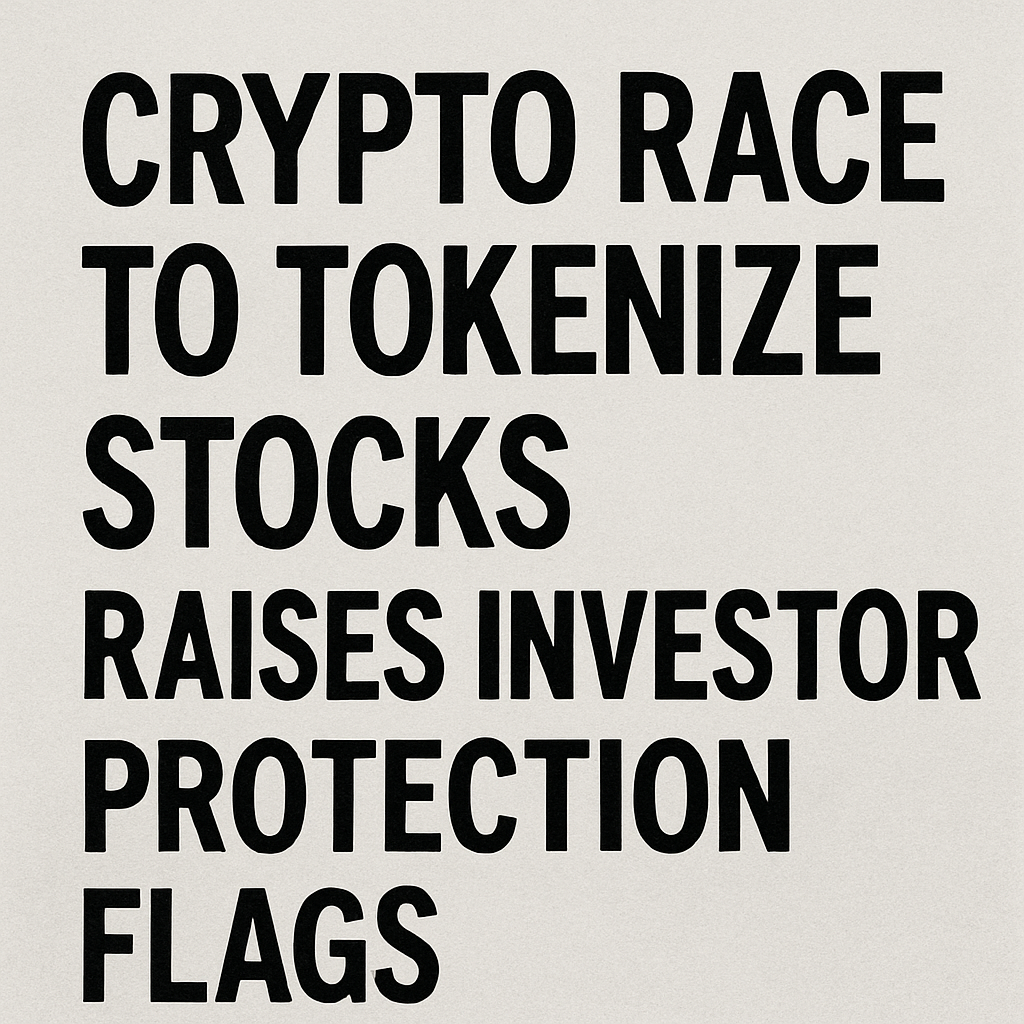A global push by blockchain platforms to introduce tokenized stock offerings has accelerated throughout early October, drawing scrutiny from legal and financial authorities. Tokenized equities, which represent shares in companies via digital tokens, are lauded for enabling 24/7 trading and instant settlement. However, these products frequently omit key features of conventional stock ownership, such as voting rights, dividends and adherence to established securities regulations.
Multiple exchanges and trading platforms, including leading crypto venues, have rolled out tokenized versions of major global companies. In Europe, platforms licensed under MiFID rules have begun offering tokens tied to underlying shares of technology and automotive giants. In the United States, several firms are pursuing regulatory clearance to launch similar products, while Nasdaq has proposed listing tokenized securities under a pilot framework. Despite this momentum, legal experts emphasize that many tokenized products function more like derivatives than actual equity instruments. The absence of strict disclosure requirements and standardized investor protections raises concerns about counterparty risks and market transparency.
Industry insiders report that the total value of tokenized stocks aimed at retail investors surpassed $400 million by September, up from negligible levels a year earlier. Nevertheless, market practitioners and traditional finance representatives warn that fragmented rules across jurisdictions could lead to liquidity constraints and investor confusion. A recent review of tokenized offerings revealed wide variations in collateralization practices, redemption procedures and issuer solvency safeguards. Some tokens claim full 1:1 backing with underlying shares, while others grant only synthetic economic exposure without formal shareholder status.
Regulatory authorities are debating the appropriate treatment of these novel digital assets. Advocates argue that tokenization could democratize access to equity markets and lower operational costs. Critics, including major brokerage and institutional groups, insist that token issuers must comply with existing securities laws and investor protection regimes. Calls for formal rulemaking at the U.S. Securities and Exchange Commission and similar bodies in Europe have intensified, with industry associations urging coordinated oversight to preserve market integrity. As tokenization continues its rapid expansion, stakeholder collaboration and clear regulatory guidance will be critical to balancing innovation with fundamental investor safeguards.
.
Comments (0)